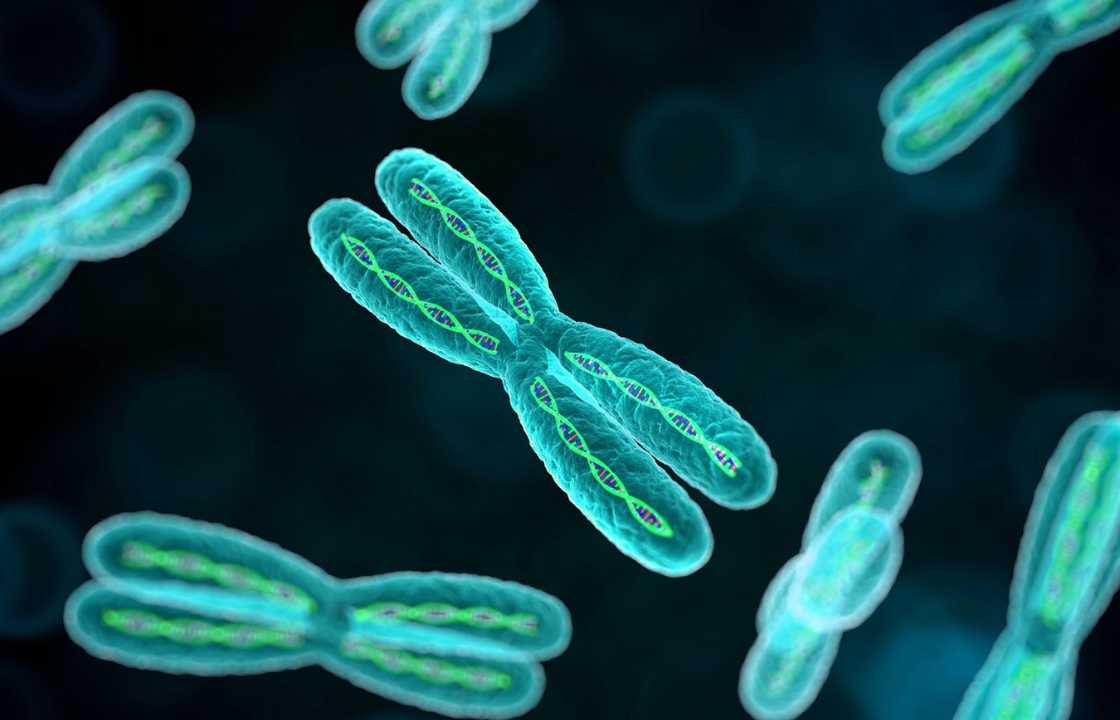Syndrome
Klinefelter Syndrome
Klinefelter syndrome, a genetic condition characterized by the presence of an extra X chromosome in males, stands as a complex interplay of genetics and developmental impacts. This syndrome, often undiagnosed until adulthood, can significantly influence various aspects of physical and reproductive health. Recognizing its symptoms, understanding its causes, and exploring available treatments are crucial for individuals affected by this condition.
Symptoms Across Lifespan
Klinefelter syndrome manifests with a range of symptoms that can vary widely among affected individuals. The effects may differ across age groups:
1. Babies:
- Weak muscles.
- Slow motor development, including delayed sitting up, crawling, and walking.
- Speech delays.
- Testicles that haven’t descended into the scrotum at birth.
2. Boys and Teenagers:
- Taller than average stature.
- Longer legs, shorter torso, and broader hips compared to peers.
- Absent, delayed, or incomplete puberty.
- Reduced muscle mass, facial and body hair.
- Small, firm testicles and penis.
- Enlarged breast tissue (gynecomastia).
- Weak bones and low energy levels.
- Challenges in expressing thoughts and feelings, along with potential difficulties in reading, writing, spelling, or math.
3. Men:
- Low sperm count or no sperm production.
- Small testicles and penis.
- Low sex drive.
- Increased height.
- Decreased facial and body hair, along with less muscle mass.
- Enlarged breast tissue and increased belly fat.
Genetic Basis
Klinefelter syndrome arises from a random genetic error, resulting in males being born with an extra X chromosome. The majority of cases involve an additional X chromosome in each cell (XXY). Rare instances include mosaic Klinefelter syndrome, where some cells have an extra X chromosome, leading to fewer symptoms, and severe forms with more than one additional X chromosome.
Notably, Klinefelter syndrome is not inherited and occurs as a random event during the formation of reproductive cells.
Risk Factors
The risk of Klinefelter syndrome is not influenced by parental actions, and it is not associated with increased risks for older mothers, although the risk may be slightly elevated. This condition is primarily a result of a random genetic occurrence.
Complications Associated with Klinefelter Syndrome
Klinefelter syndrome can introduce various complications, including:
- Anxiety and depression.
- Social, emotional, and behavioral challenges.
- Infertility and sexual function issues.
- Weak bones (osteoporosis).
- Increased risk of heart disease, certain cancers, lung disease, and metabolic syndrome.
- Autoimmune disorders, tooth and oral problems, and autism spectrum disorder.
Diagnosis
Diagnosing Klinefelter syndrome involves a thorough physical examination, hormone testing to identify abnormal hormone levels, and chromosome analysis (karyotype analysis) to confirm the presence of an extra X chromosome.
In some cases, the syndrome can be identified prenatally through procedures like amniocentesis, which analyzes fetal cells drawn from amniotic fluid, or noninvasive prenatal screening blood tests.
Treatment Approaches
While the genetic changes associated with Klinefelter syndrome cannot be reversed, treatments aim to mitigate its effects. A multidisciplinary healthcare team, including an endocrinologist, speech therapist, pediatrician, physical therapist, genetic counselor, reproductive medicine specialist, and counselor or psychologist, may collaborate to address various aspects of the condition.
1. Testosterone Replacement Therapy: Initiated at the onset of puberty, this therapy stimulates changes normally occurring during puberty, such as deepening voice, growth of facial and body hair, increased muscle mass, and sexual desire. It can also improve bone density and reduce fracture risks.
2. Breast Tissue Removal: Enlarged breast tissue can be surgically removed to achieve a more typical chest appearance.
3. Speech and Physical Therapy: Beneficial for addressing speech, language, and muscle weakness issues.
4. Educational Evaluation and Support: Tailored support for learning challenges and socialization difficulties.
5. Fertility Treatment: While most men with Klinefelter syndrome face infertility due to minimal sperm production, procedures like intracytoplasmic sperm injection (ICSI) may assist in cases with limited sperm.
6. Psychological Counseling: Counseling can help individuals cope with the emotional challenges associated with Klinefelter syndrome, especially during puberty and young adulthood.
Coping and Support
Effective coping and support strategies are essential for individuals with Klinefelter syndrome. Supportive measures include:
- Regular follow-up appointments.
- Participation in sports and physical activities.
- Inclusion in social opportunities and group activities.
- Collaboration with educational institutions for additional support.
- Utilizing available support groups and resources for both individuals and parents.
Preparation for Appointments
In the pursuit of medical attention for suspected Klinefelter syndrome, proactive preparation plays a pivotal role in ensuring a thorough and informed assessment. Assembling pertinent information, encompassing not only the observable signs and symptoms but also a comprehensive medication history and developmental milestones, empowers both the individual and their healthcare provider in navigating the diagnostic process with precision. Furthermore, engaging in a dialogue by posing pertinent questions about the intricacies of the diagnosis, potential underlying causes, necessary tests, and the spectrum of available treatment options is indispensable. This collaborative approach not only fosters a deeper understanding of the condition but also establishes a foundation for informed decision-making, ultimately maximizing the efficacy of the medical appointment. Additionally, inquiring about the various support resources and networks available further enhances the holistic approach to managing Klinefelter syndrome, fostering a sense of empowerment and resilience in the face of this genetic complexity.
Conclusion
Klinefelter syndrome, a chromosomal disorder characterized by the presence of an extra X chromosome in males, stands as a multifaceted genetic condition with profound implications for both physical and reproductive well-being. A nuanced comprehension of its diverse symptoms, intricate genetic underpinnings, and the array of available treatments equips individuals and their healthcare teams to adeptly navigate the intricate landscape of challenges associated with this syndrome. The significance of timely diagnosis cannot be overstated, paving the way for a proactive and tailored multidisciplinary approach to treatment. This holistic strategy not only addresses immediate concerns but also contributes significantly to long-term outcomes, underscoring the vital role of comprehensive care across the entire lifespan of individuals with Klinefelter syndrome.

